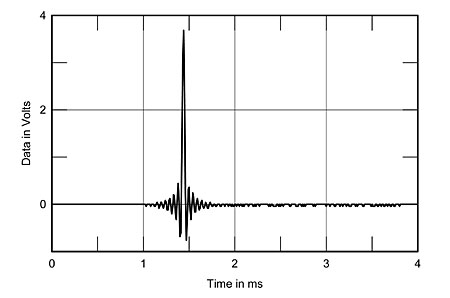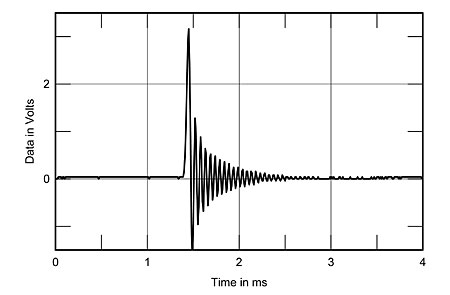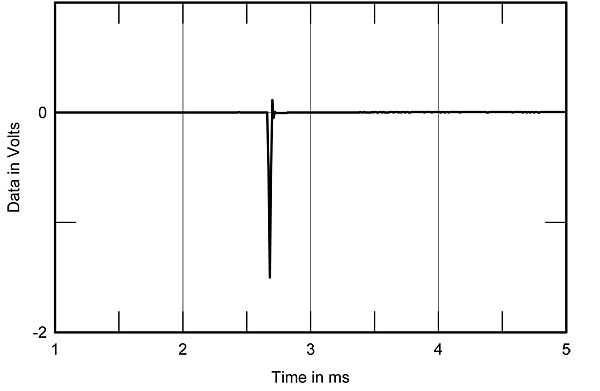Digital vs Analogue volume control
- Thread starter Overdose
- Start date
You are using an out of date browser. It may not display this or other websites correctly.
You should upgrade or use an alternative browser.
You should upgrade or use an alternative browser.
oldric_naubhoff
New member
- Mar 11, 2011
- 23
- 1
- 0
digital volume ctrl - less bits - less resolution - more noise. now, if this is going to be audible? maybe with exceptionally sensitive speakers at low volume levers.
analog volume ctrl - the good ones use battery of precision resistors which just limit the signal voltage. but leave the signal shape intact.
analog volume ctrl - the good ones use battery of precision resistors which just limit the signal voltage. but leave the signal shape intact.
John Duncan
Well-known member
Can't say I've noticed a difference, though I did get a 651a specifically so that I could control the analogue volume. Call me -nal...
A
Anonymous
Guest
Actually there is a third class, digitally controlled analogue volume controls. These are invariably used in AVRs and can be found in quite a few stereo amplifiers too. They normally use a specialised IC with resistor ladders switched by CMOS analogue switches. They can be extremely good (i.e. sonically benign) and don't suffer from the mismatching associated with even the best conventional potentiometers.
John Dawson
John Dawson
Thanks,
So in essence, digital control can affect resolution and potentially quality, analogue control, much less so?
In the case of digital, I would assume that higher resolution music (above 16 bit) is less susceptible to this potential degradation?
So in essence, digital control can affect resolution and potentially quality, analogue control, much less so?
In the case of digital, I would assume that higher resolution music (above 16 bit) is less susceptible to this potential degradation?
oldric_naubhoff
New member
- Mar 11, 2011
- 23
- 1
- 0
John Arcam Dawson said:Actually there is a third class, digitally controlled analogue volume controls. These are invariably used in AVRs and can be found in quite a few stereo amplifiers too. They normally use a specialised IC with resistor ladders switched by CMOS analogue switches. They can be extremely good (i.e. sonically benign) and don't suffer from the mismatching associated with even the best conventional potentiometers.
John Dawson
yeah, I've got something like that in my Pathos. but still, it's analog volume ctrl. only digitally controlled instead of manually or mechanically.
oldric_naubhoff
New member
- Mar 11, 2011
- 23
- 1
- 0
Overdose said:In the case of digital, I would assume that higher resolution music (above 16 bit) is less susceptible to this potential degradation?
maybe so, but I'm not sure. never thought about it. never been interested in digital preamps. so, it's now up to you to do some research. 🙂
Overdose said:So in essence, digital control can affect resolution and potentially quality, analogue control, much less so?
A properly designed digital attenuation wont cut bits and is cleaner than an analog pre which adds distortion and colouration. If you want to clean up a signal digital pre's are a good way to go.
shooter said:Overdose said:So in essence, digital control can affect resolution and potentially quality, analogue control, much less so?
A properly designed digital attenuation wont cut bits and is cleaner than an analog pre which adds distortion and colouration. If you want to clean up a signal digital pre's are a good way to go.
+1
busb said:shooter said:Overdose said:So in essence, digital control can affect resolution and potentially quality, analogue control, much less so?
A properly designed digital attenuation wont cut bits and is cleaner than an analog pre which adds distortion and colouration. If you want to clean up a signal digital pre's are a good way to go.
+1
+1, but
what does properly designed means. if the OP want s to choose a properly desigend one, what to look for?
My understandign is that digital vol control to be 'near perfect' should be high bid-depth processing i.e. 24 bit or higher. sometimes (always?) dithering is also used which I understand is good too.
right?
chebby
Well-known member
Overdose said:Are there any downsides for example, in using the digital volume control on the Dacmagic plus?
Love him or hate him*, Ken Rockwell measured the volume control at -20dB, -40dB and -60dB gain for distortion and found it performed very well in this regard...
http://kenrockwell.com/audio/cambridge/dacmagic-plus.htm
Do an 'edit', 'find' for "volume control introduces" (without the speech marks) to find the relevant bit quickly.
*Sorry JD, I know you hate KR (as do I ), but he does answer this specific question of the OP's.
AlmaataKZ said:busb said:shooter said:Overdose said:So in essence, digital control can affect resolution and potentially quality, analogue control, much less so?
A properly designed digital attenuation wont cut bits and is cleaner than an analog pre which adds distortion and colouration. If you want to clean up a signal digital pre's are a good way to go.
+1
+1, but
what does properly designed means. if the OP want s to choose a properly desigend one, what to look for?
You need a dithered digital attenuation.
AlmaataKZ said:busb said:shooter said:Overdose said:So in essence, digital control can affect resolution and potentially quality, analogue control, much less so?
A properly designed digital attenuation wont cut bits and is cleaner than an analog pre which adds distortion and colouration. If you want to clean up a signal digital pre's are a good way to go.
+1
+1, but
what does properly designed means. if the OP want s to choose a properly desigend one, what to look for?
My understandign is that digital vol control to be 'near perfect' should be high bid-depth processing i.e. 24 bit or higher. sometimes (always?) dithering is also used which I understand is good too.
right?
I tried to edit my post immdiately after it appeared but it got lost in the ether probably 'cos it got quoted. so:
My previous amp (PrimareI21) had a digitally controlled analogue volume control that had 1dB increments. It worked fine but the jump from 0 to 1 was too coarse. I fancied a motorised volume control (with a little red LED!) but never actually owned one such as on the Roksans.
My audiolab M-DAC has a digital domain volume control, again with 1dB steps but works extremely well where the difference between -80 (off effectively) & -79 is nice & fine. A friend's Moon i1 has a motorised volume that makes a mechanical sound whilst being used. My M-DACs volume allow me to feed its output into the "Direct" input of my amp with its purely analogue volume control set at max but is still effective though never now used. My next upgrade will be to a power amp with XLR inputs thus bypassing my present setup's volume control (all my inputs are digital).
The M-DAC IS working with 32bit depth (IIRC but I maybe wrong in which case only 24bit) which is why I'm not bothered about using passive attenuators between it & any future power amp. I would agree that 24bit depth when manipulating volume levels is probably not a bad idea. Some may argue that the Red Book standard of 16bit is good enough but when editing (volume adjustments included), 24bit depth allows the integrity of 16bits to be left intact.
oldric_naubhoff said:digital volume ctrl - less bits - less resolution - more noise. now, if this is going to be audible? maybe with exceptionally sensitive speakers at low volume levers.
analog volume ctrl - the good ones use battery of precision resistors which just limit the signal voltage. but leave the signal shape intact.
Volume levers? That's a brilliant idea! Let say a foot long, chrome with nice polished brass knobs! Perhaps you could approach Chord electronics to see if they would run with the idea? Dead cool! 😛oke:
A
Anonymous
Guest
AlmaataKZ said:+1, but
what does properly designed means. if the OP want s to choose a properly desigend one, what to look for?
My understandign is that digital vol control to be 'near perfect' should be high bid-depth processing i.e. 24 bit or higher. sometimes (always?) dithering is also used which I understand is good too.
right?
I think digital volume control has to be well designed...take the Wadia volume control for example. It has 2 good properties:
1. The digital input is first upsampled to 24 bits, then resolution above 16 bits is not sacrificed except at low volume levels.
2. So that you can always play your music at optimum volume level (> 70%), it has configurable attenuation on the outputs which feed the power amps directly. You adjust these so that you can operate the volume in the 70-100 range for typical listening.
The Wadia volume has 100 steps, each step is 0.5db increment. So volume of 1 is essentially -50db.
This from the Wadia web pages:
Digital Volume Control (with adjustable maximum output level)
Since 1992, Wadia has continued to refine the first audiophile-quality digital volume control. It remains the only volume control that delivers the theoretical advantages of volume control in the digital domain. Although less sophisticated digital volume controls can sacrifice resolution, Wadia's volume control with adjustable maximum output level can be optimized to match a wide range of systems, ensuring greater than 16-bit resolution over the majority of the volume range.
Thanks for the input chaps. Some of the answers have sent me off looking elsewhere.
Here is one good source.
http://www.whatsbestforum.com/showthread.php?3813-Digital-Volume-control
Looking amongst all the info, it would seem that digital is the way forward, but properly implemented volume attenuation, digital or analogue, solutions work perfectly well.
Dacmagic Plus, still on the top of the list. 🙂
Here is one good source.
http://www.whatsbestforum.com/showthread.php?3813-Digital-Volume-control
Looking amongst all the info, it would seem that digital is the way forward, but properly implemented volume attenuation, digital or analogue, solutions work perfectly well.
Dacmagic Plus, still on the top of the list. 🙂
oldric_naubhoff
New member
- Mar 11, 2011
- 23
- 1
- 0
shooter said:Overdose said:So in essence, digital control can affect resolution and potentially quality, analogue control, much less so?
A properly designed digital attenuation wont cut bits and is cleaner than an analog pre which adds distortion and colouration. If you want to clean up a signal digital pre's are a good way to go.
nonsense. since when a passive attenuator adds distortion? passive preamps have 0 (zero) THD. amplification adds THD, hence it's active preams which measure THD. but it has nothing to do volume control per se.
oldric_naubhoff
New member
- Mar 11, 2011
- 23
- 1
- 0
busb said:oldric_naubhoff said:digital volume ctrl - less bits - less resolution - more noise. now, if this is going to be audible? maybe with exceptionally sensitive speakers at low volume levers.
analog volume ctrl - the good ones use battery of precision resistors which just limit the signal voltage. but leave the signal shape intact.
Volume levers? That's a brilliant idea! Let say a foot long, chrome with nice polished brass knobs! Perhaps you could approach Chord electronics to see if they would run with the idea? Dead cool! 😛oke:
man. you're truly a star... :roll:
like there's nothing better to bite on. you'd better check if your spoons and forks lie lined up in the drawer.
oldric_naubhoff
New member
- Mar 11, 2011
- 23
- 1
- 0
shooter said:You need a dithered digital attenuation.
dithering is just simply replacing systematic error for random error in order to conceal the systematic one. dithered pictures look better than not dithered when downsized but they are not of the quality of the original picture though. I presume the same thing happens with audio signal.
I also found this post which may be of interest:
http://www.whatsbestforum.com/showthread.php?3813-Digital-Volume-control
it's about analog vs digital volume ctrl and SNR levels vs attenuation level.
oldric_naubhoff
New member
- Mar 11, 2011
- 23
- 1
- 0
Dr Lodge said:1. The digital input is first upsampled to 24 bits, then resolution above 16 bits is not sacrificed except at low volume levels.
and upsampling on the other hand introduces digital ringing.
here's impulse response from a DAC with linear phase filter, the most popular with upsampling DACs (this one is from Benchmark DAC1):



oldric_naubhoff
New member
- Mar 11, 2011
- 23
- 1
- 0
Overdose said:Thanks for the input chaps. Some of the answers have sent me off looking elsewhere.
Here is one good source.
http://www.whatsbestforum.com/showthread.php?3813-Digital-Volume-control
Looking amongst all the info, it would seem that digital is the way forward, but properly implemented volume attenuation, digital or analogue, solutions work perfectly well.
Dacmagic Plus, still on the top of the list. 🙂
ha! I pasted the same link without reading your post first. my bad... sorry lads.
oldric_naubhoff said:busb said:oldric_naubhoff said:digital volume ctrl - less bits - less resolution - more noise. now, if this is going to be audible? maybe with exceptionally sensitive speakers at low volume levers.
analog volume ctrl - the good ones use battery of precision resistors which just limit the signal voltage. but leave the signal shape intact.
Volume levers? That's a brilliant idea! Let say a foot long, chrome with nice polished brass knobs! Perhaps you could approach Chord electronics to see if they would run with the idea? Dead cool! 😛oke:
man. you're truly a star... :roll:
like there's nothing better to bite on. you'd better check if your spoons and forks lie lined up in the drawer.
I can asure you that if offence was meant, it would have been a lot sharper. I'm a visual person so I just had these pictures in my mind of a shiny Chord amplifier with levers sticking out. Sometimes, humour sails closer than some feel comfortable with. If this was the case here, I apologise.
oldric_naubhoff said:shooter said:Overdose said:So in essence, digital control can affect resolution and potentially quality, analogue control, much less so?
A properly designed digital attenuation wont cut bits and is cleaner than an analog pre which adds distortion and colouration. If you want to clean up a signal digital pre's are a good way to go.
nonsense. since when a passive attenuator adds distortion? passive preamps have 0 (zero) THD. amplification adds THD, hence it's active preams which measure THD. but it has nothing to do volume control per se.
Have to disagree. A passive volume control adds distortion as phase distortion. As a general rule, its the impedance limitations of the typical high end volume pot that causes the poor reproduction of dynamics and high frequency loss, also keep in mind that even the slightest unevenness in frequency response or phase distortion will add a false sense of dynamics since the apparent volume of the playback will vary as the pitch of the music varies, these factors add muddiness to the sound. There are better pots than others but even the best has degrees of the above.
Reagarding dithering, yes its quantization steps and has nothing to do with SNR. The idea about dithering is to de-correlate the quantization error from the audio signal. If the dither noise is added to the 24 bit sample after the level control and befor the re-quantixation to 16 bits, the quantixation erro can be fully cecorrelated from the signal. This means instead of distortion there is noise, the music in undistorted.
There is a different method and the more elaborate dithering shape the noise in such a way that is is mainly at higher frequencies where the human ear is less sensitive. This means the audible noise is much lower.
:shifty: :cheers:
oldric_naubhoff
New member
- Mar 11, 2011
- 23
- 1
- 0
busb said:I can asure you that if offence was meant, it would have been a lot sharper. I'm a visual person so I just had these pictures in my mind of a shiny Chord amplifier with levers sticking out. Sometimes, humour sails closer than some feel comfortable with. If this was the case here, I apologise.
if you put it that way, there's no need to apologise. :cheers:
I just thought you were one of those guys who can't stand, for instance, "propably" in other people's posts and has to point that out for everybody. and then I got slightly annoyed... :shifty:
Similar threads
- Replies
- 4
- Views
- 515
- Replies
- 3
- Views
- 1K
- Replies
- 12
- Views
- 2K
TRENDING THREADS
-
-
Would a HiFi setup sound better than a home cinema setup for music?
- Started by R2D2
- Replies: 54
-
-
-
-
-

Space.com is part of Future plc, an international media group and leading digital publisher. Visit our corporate site.
© Future Publishing Limited Quay House, The Ambury, Bath BA1 1UA. All rights reserved. England and Wales company registration number 2008885.
